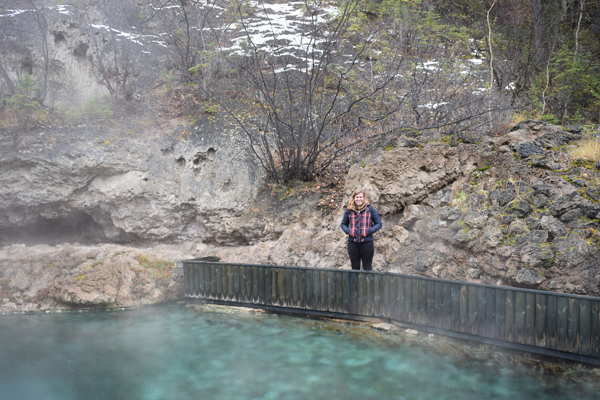Cookies
Van Hall Larenstein treats its customers' information with the utmost care and will never make this information available to third parties. Read more about us Privacy and Cookie Policy
"Do I want to be a vet? That’s the question I asked myself a thousand times during the four years that I studied at VHL University of Applied Sciences (VHL). But I never would have suspected how much I would grow to love cows." Marleen Middeldorp studied Animal Husbandry in Velp and specialised in Applied Animal Science (now Animals, Society and Business). At the moment she is doing her Master’s degree in Animal Science at Wageningen University.
Dairy cows and dairy farming
"My interest in dairy cows and dairy farming started during my first year. By visiting different lines of animal and livestock farms, my passion for the health (and later also the nutrition) of dairy cows kept growing. I studied Applied Animal Science, a very practice-based and challenging specialisation. I learned a lot; they teach you everything within the sector. To me personally the projects involving livestock farmers and other stakeholders in the sector meant the most. There is a lot of cooperation within the projects. At first I thought that would be hard for me, but I actually enjoyed it very much. It is up to yourself how in-depth you want to make your projects. I found that very valuable. If I would have to choose again, I’d choose the same study."
Continue studying
"I knew from the beginning of Animal Husbandry that I would continue studying after I got my bachelor, and I did. When I started my first year I thought that veterinary medicine was the only option. At that time Applied Animal Science (Animal Husbandry) was located at the main building of Wageningen University (WUR). That made me think I could also study Animal Science at WUR, which raised the question: what’s the difference between veterinary medicine and animal science, and which do I prefer?"
Internship
"To answer my question I started an internship at the Livestock Practice of Utrecht University, where I found out what a vet does every day. The health and welfare projects with, and counselling of livestock farmers were great, but I was disappointed to find out that a cow veterinary spends most of his time doing fertility checks. After my internship I did a minor in veterinary science at the WUR. This was more to my liking, it had more substance but wasn’t focused on just one profession."
Master Animal Science
"Now I’m in the second year of my master Animal Science at WUR. I would like to specialise in two fields, namely Nutrition and Animal Physiology. Right now I’m writing one of my theses. I’m spending six months in Canada (Edmonton, AB), doing research on the development of the gastrointestinal system of calves before, during and after weaning. I would like to do my second graduate project at the animal health service."
Options
"I’m not sure yet what my future job will be like and what I want exactly, so I’m keeping all my options open. However, I did find out what the difference is between veterinary medicine and animal science: a vet cures animals and an animal scientist keeps them from getting sick (although it’s not all that black and white)."
More information:
Bachelor Animal Husbandry
